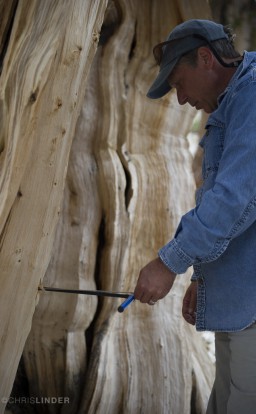Matthew Salzer

Dr. Salzer’s current research involves the construction and interpretation of multi-millennial bristlecone pine tree-ring chronologies. These chronologies provide information regarding past environmental and climate change in western North America and the impact of such change on human and other biotic populations.
This research program investigates the role of climate as a driver of ecosystem variability and environmental change. Dr. Salzer's interests merge techniques from dendrochronology, paleoclimatology, biogeography, and archaeology. These interests center around two connected themes. First, developing long histories of climate variability in western North America. This involves the development of annually resolved, spatially explicit tree-ring based reconstructions of temperature and hydoclimatic variables to identify the range of climatic variability in the system. Reconstructions such as these are an important component of developing informed policies that address the impacts of global warming. They also contribute to understanding the drivers and mechanisms related to climate and environmental change within longer-term contexts. The second research focus centers on the influence of climatic change on the cultural-ecological landscape with particular attention to the response of human societies to change as evidenced in the archaeological record. While each of these themes can be pursued alone, the strength of this approach lies in linking these themes in order to provide a foundation for comparing current evidence for climatic/ecosystem change with changes of the past, and thus the ability to guide and inform plans that address long-term sustainability.